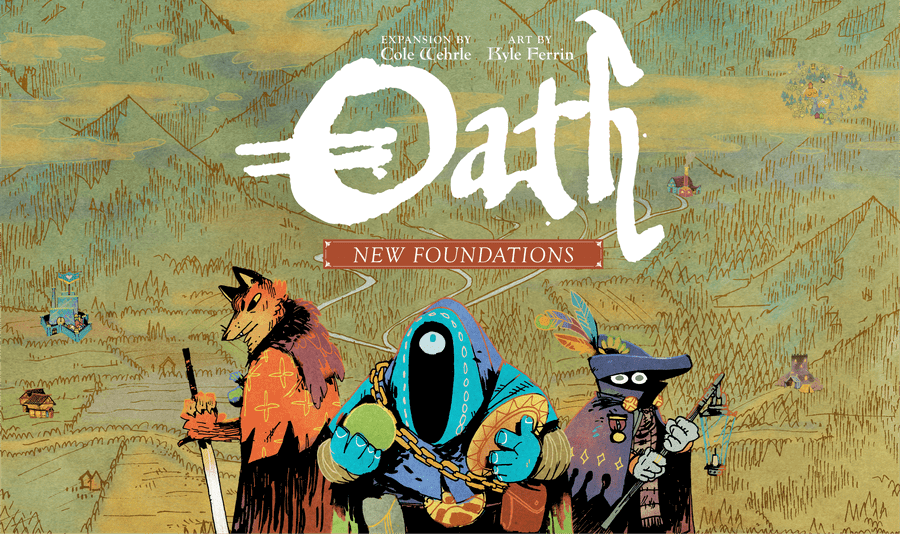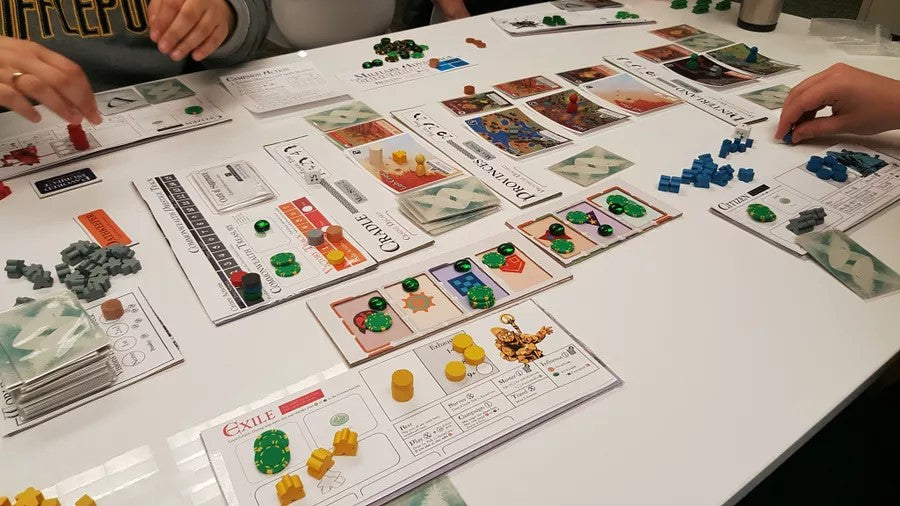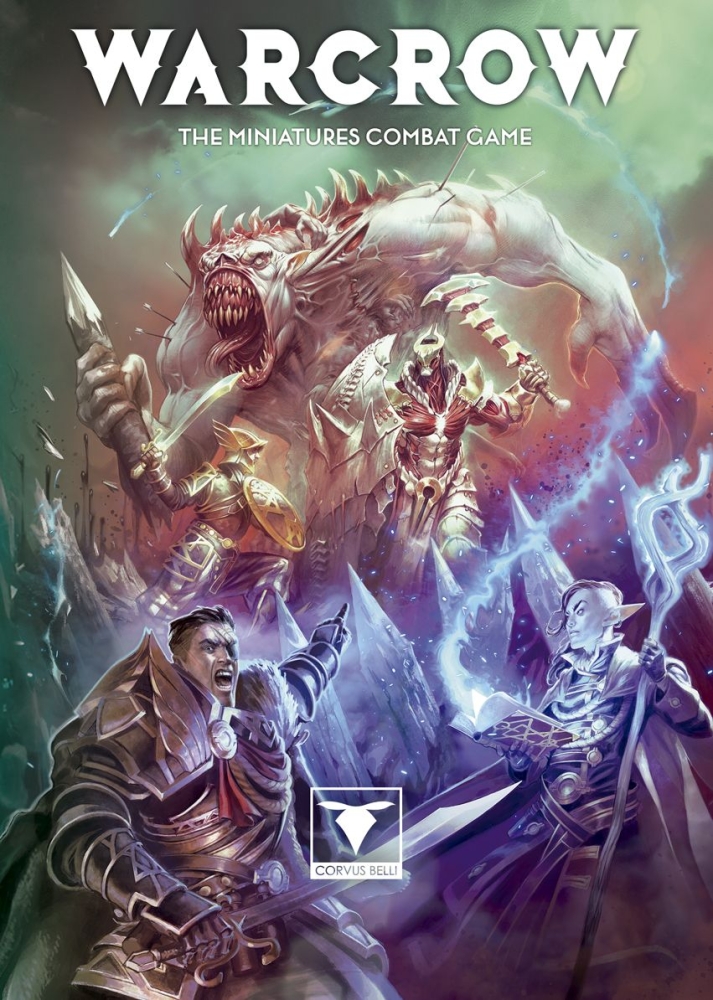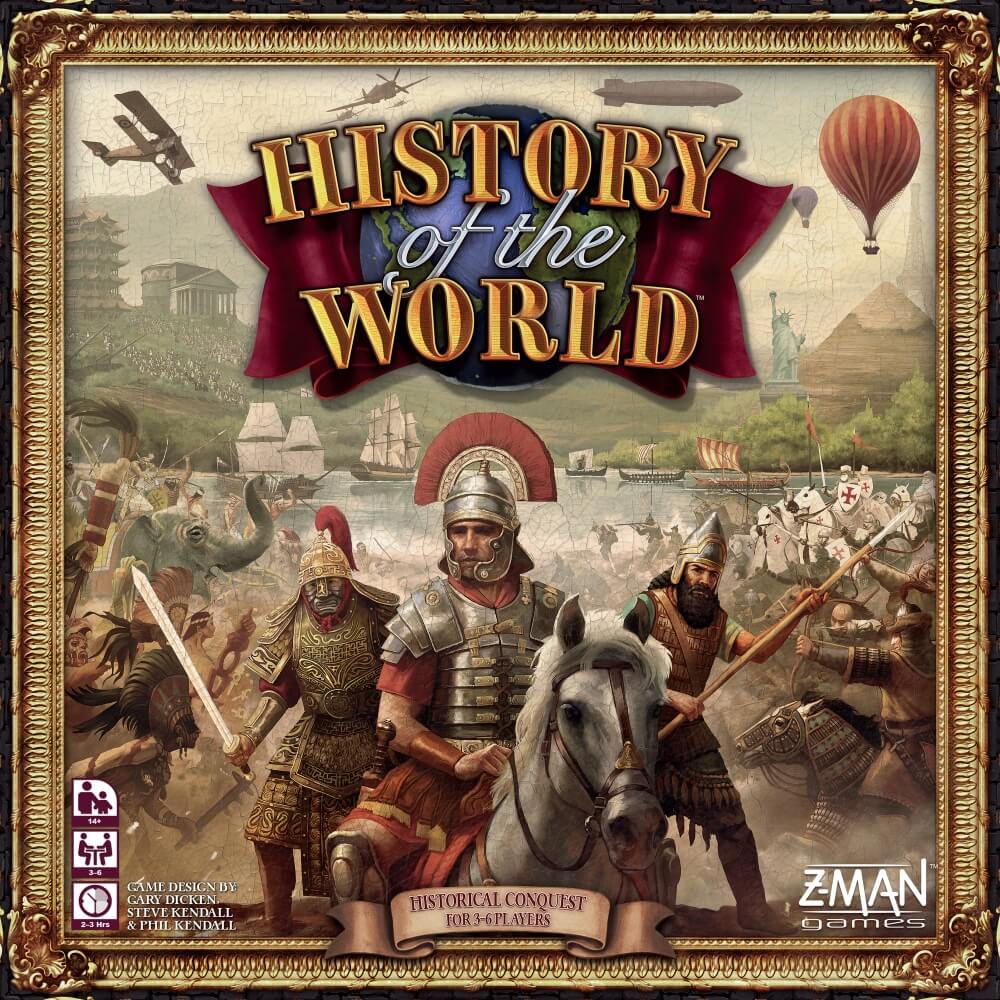
Oath: New Foundations
Discover Oath: New Foundations, the expansion that reimagines the Oath universe. In this new chapter, you'll have the opportunity to deepen your strategies and expand your family lineage through intriguing encounters and meaningful challenges. Build your legacy in a world full of choices and consequences, while shaping the foundations of the game according to your ambitions. With hundreds of new cards and innovative mechanics, each match becomes a distinct narrative, offering newcomers and veterans alike a fresh and engaging experience. Get ready to write your own story in a dynamic and immersive environment.Artists: Kyle Ferrin;
Designers: Cole Wehrle;
Date: 2025
Note:
Mechanics: Influence / Majority in the Area, Area Movement, Storytelling, Negotiation, Action Points, Data Scrolling
Table of Contents
- How to Play
- Tips for playing
- Game mechanics
- Game components
- Additional Information
OBJECTIVE OF THE GAME

Tips for playing
Here are some tips for doing better in the game Oath: New Foundations:
- Understand the roles in the game: Identify whether it's best to be the Chancellor, Citizen or Exile based on your winning strategy.
- Manage your cards: Cards are valuable resources, use them strategically to secure an advantage over your opponents.
- Pay attention to the board state: Winning conditions can change quickly, so always be aware of the current state of play.
- Connections between locations are crucial: Use the game's geography to your advantage by controlling strategic locations to block or influence your opponents.
- Plan ahead: Although improvisation is useful, having a solid plan avoids unpleasant surprises from cunning opponents.
- Explore different winning conditions: Be on the lookout for opportunities to change the winning conditions in your favor.
- Negotiate with players: Diplomacy can be a powerful tool, use it to form temporary alliances or secure advantages.
- Observe the other players: Understanding your opponents' intentions and strategies can give you a crucial advantage.
- Use favors wisely: Focus on distributing and adopting favors as necessary to achieve your goals.
- Adapt throughout the game: As the game evolves, be prepared to adjust your strategy to react to changes in the game.
Video about the game
GAME mechanics
- Influence / Majority in the Area: In Oath: New Foundations, players compete to control regions of the map, each offering different advantages and challenges. Control of an area is usually determined by the presence of players' followers, armies or structures. Having a majority in an area can grant specific benefits, such as additional resources or special abilities, influencing the balance of power and the progression of the game. The mechanics of area majority are intrinsically linked to players' long-term strategy, as controlling dominance over critical territories can change the course of the game.
- Area Movement: Oath allows players to move their pieces, including characters and units, between different areas of the game board. Each move consumes action points, and the available routes can vary depending on geographical barriers or restrictions imposed by cards in play. Careful movement planning is crucial, as strategic positions can decide battles or enable alliances with other players. In addition, movement mechanics affect not only tactical position, but also the ability to gather information or attack opponents unexpectedly.
- Storytelling: Oath has an emergent narrative that evolves according to the actions of the players and events that occur in the game. Players' decisions, alliances and conflicts create a rich tapestry of personalized stories in each game. Events impact the state of the board and the political environment, and can have significant repercussions on victory conditions and relationships between characters. Event cards and the legacy contributed by previous games add another layer to the narrative experience, where each game is part of a wider chronicle.
- Negotiation: Interactions between players are fundamental in Oath, where negotiation can involve exchanges, temporary alliances, or cooperative actions against a common adversary. Although not mandatory, negotiation can strongly influence the course of the game. Promises made during negotiations are non-binding, allowing for betrayals and shifts in allegiance that can subvert carefully laid plans. Personalized diplomacy regulates the fluid political environment, where trust and deceit go hand in hand.
- Action Points: Players in Oath use action points to perform various tasks, such as movement, combat, activating special abilities and so on. Effective management of action points is crucial, as each action consumes part of a turn's limited resources. Optimizing the use of these points can favour territorial control, defence or the achievement of specific victory objectives linked to the current game situation. This system requires precise planning and instant tactical adaptation.
- Rolling dice: Although many actions in Oath are determined by the players' strategy and decisions, dice rolling is used to introduce an element of unpredictability and risk into battles and events. The results of the dice can change the success of an attack, the resolution of an event or the amount of resources received. This mechanic adds a layer of tension and uncertainty, where even perfect planning must take into account chance and the luck of the dice to ensure victory.
Game components
See all the items in the game below Oath: New Foundations:
- Citizen's Cards
- Action Markers
- Conflict pieces
- Game Board
- Progress sheets
- Decision letters
- Player boards
- Alliance components
Additional Information
- Ludopedia link: https://ludopedia.com.br/jogo/oath-new-foundations
- Link Tabletopia:
- Amazon Brazil link: Comprar Oath: New Foundations
- Amazon USA link: Comprar Oath: New Foundations


